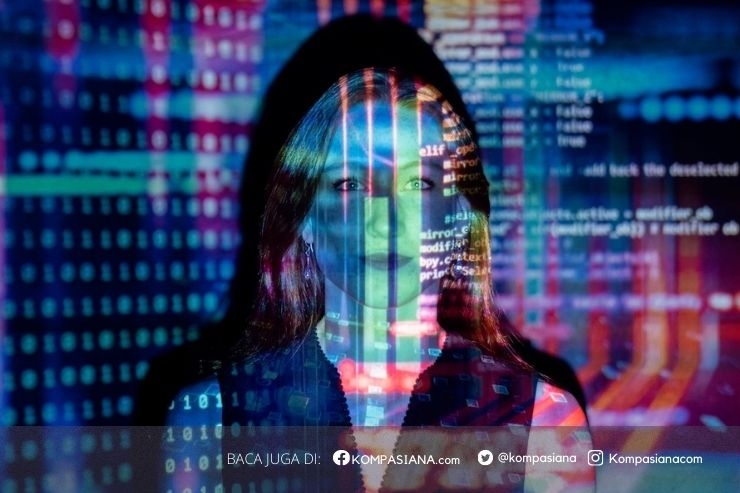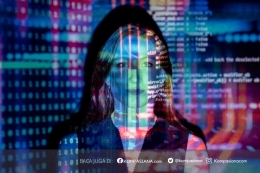Culture shift (to be differentiated with culture change) usually refers to the process of new or unique items — can be a person, a product, an idea, or ideology — interacting with and becoming part of an existing (foreign) culture. In terms of human experience, it can be described as a form of psychological disorientation likened to frustration that may be the result of a combination of many elements within the new environment or the lack of elements from the old culture, in the process of adjusting to the new culture.
In this digital era, however, this can still happen without us ever having to visit and/or directly experience another culture from another far away place. Perhaps not in the way that the “normal” culture shift happens, but more in the form of the supplanting of local products, ideas, or even ideologies through the use of technology, especially social media.
Social media allows us to easily see, learn, and to a point, experience other people’s cultures and experiences. While culture shift through social media may take longer, in my opinion, it is actually easier to occur and “smoother” in nature because it doesn’t have that phase where someone may feel homesickness, hyper-irritability, bitterness or resentment towards their host country, social anxiety, and other negative feelings because they’re not actually there. They’re in their home, using and/or watching other TikTok users from another country.
That being said, it can also be dangerous because like I said very early in this article, sometimes we don’t realize the change. And what’s worse, sometimes we don’t have the appropriate filter for it, so we could be taking in and assimilating other cultures with no limits, without knowing whether it’s a good thing for us.
On a more business-related note, in the wake of COVID-19 pandemic, the film industry, and especially theater chains are faced with hard decisions. The theater chains are bleeding money just to keep their businesses afloat. The studios aren’t in a much better shape either and they need money to keep making more movies to make more money. But with theaters being closed, some are forced to release their movies on streaming platforms. While on the outset it may seem like the pandemic is the one to blame, the theater industry has been in a rough shape long before the COVID-19 hit them hard. Slowly, but surely, people are bringing the theater experience into their own homes (read: streaming).
While I personally like the theater experience, I also can’t deny that economically, streaming is the way to go for the general customers. For example, in the US, average ticket prices for the last few years are around $15 a ticket, for ONE movie, that’s excluding popcorn and beverages. Meanwhile, Netflix subscribers can enjoy ANY number of movie or shows they like to watch for a whole MONTH, for only $9 - $18 (depending on the subscriber’s choice of plan). Granted, most people don’t have a giant projection and Dolby surround system in their homes, but I don’t think most people care. As more and more people around the world has easy access to high-speed internet, we will probably see the start point that is the end of theater industry.
The rapid change in technology — either by improvements or new innovation — that is disruptive enough is usually followed by a change in the business model, voluntarily or involuntarily. The rate in which the change of the business model takes can be slow or swift depending on how quick the customers’ cultures adapt to the change in technology.
CIVILIZATION SHIFT
When there’s a dramatic change in our way of life, communicate, and think that affects us globally; or when we start to think as a species rather than a collection of individuals of different race, ethnicity, and religion, I think it’s an indication that we’re in a civilization shift. Do the fast-growing and rapid advancements of technology have the ability to trigger such a phenomenon? I'm not equipped with the required knowledge to answer that question, but I do think we’ve seen the signs in the last decade or so.
Humans usually evolve to accommodate change in the environment. Evolving isn’t limited to biology, we evolve in the way we think as well. The change in the environment will eventually force us to change our way of thinking. One of the important elements of our environment is technology.
Nowadays, we don’t move a lot, but we do move a lot of data and information. Even in the event that some of us do move a lot, e.g. couriers, drivers, pilots or delivery service workers, our transportation systems and technology are now getting more efficient by the day, not just in terms of the engineering, but in the devices that helps us navigate as well. We’re slowly moving all the burden of computation to computers, from something as simple as computing the average grades of our students, finding the best or fastest route to take, analyzing big data to detect customers’ consumption and buying patterns, to solving the hardest mathematical problems.







